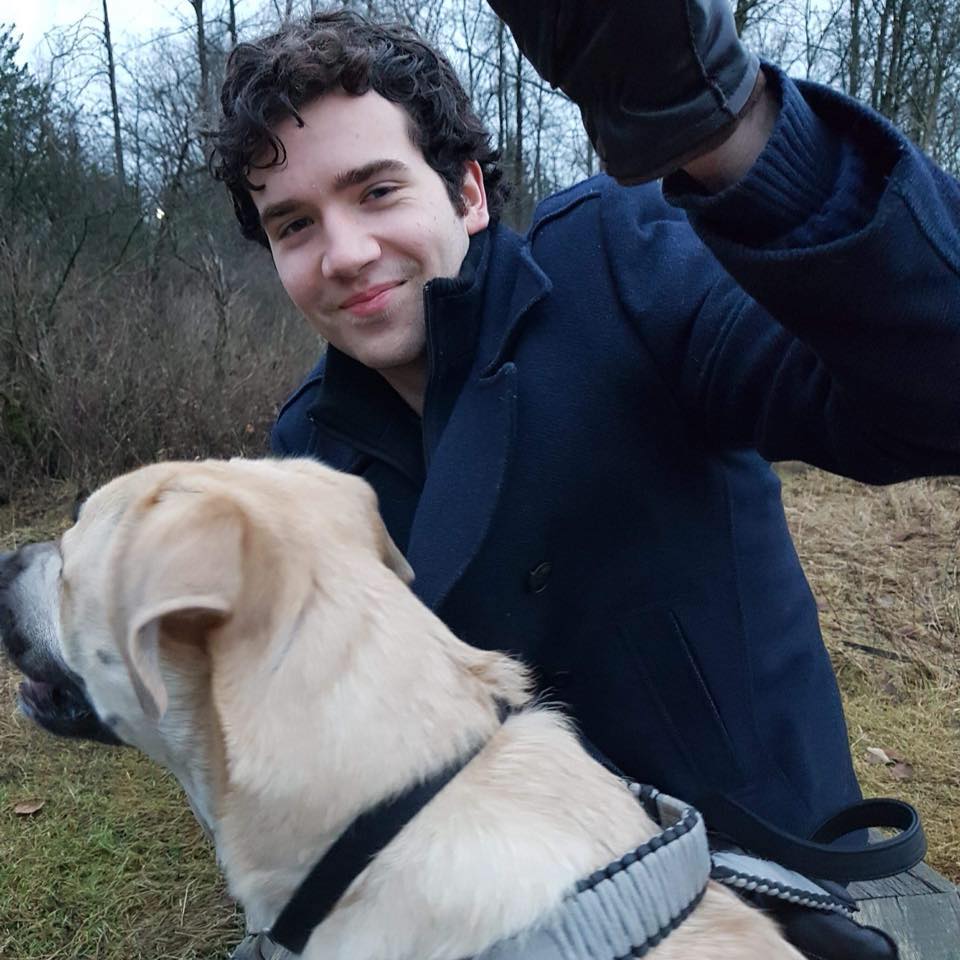Aaron Barry

spring morning—
a cherry blossom
breaks the silence
Aaron Barry
Port Moody, British Columbia
Congratulations on having your haiku selected as the top winner in the Vancouver category in the Vancouver Cherry Blossom Festival’s 2019 Haiku Invitational contest. How did you first learn about haiku, and how much writing of haiku or other poetry have you done?
Like many others, I first learned of haiku when I was in elementary school. I regret to say that it was a chore to write them in those days. It wasn’t until the spring of 2018 that I rediscovered the form. While recovering from a rather serious illness, I needed something that would help me get back into writing. I found a copy of The Penguin Book of Japanese Verse at a local bookstore and started imitating the haiku in it. A few months later, thinking that I was on to something, I sent some of my poems out to a few magazines, but to my utter dismay, no one wanted anything to do with them. (In all fairness, they were dreadful.) It was only when I started reading back issues of popular haiku magazines that I saw just how radically the form had changed in the modern era. Haiku was actually kind of hip. Guys like Jim Kacian and John Stevenson were really bending the rules and pushing the form to its limit. It was quite fun to see. It was at that point that I resolved to put my own unique stamp on the form I had grown to love.
What was the inspiration for your winning poem?
Everyone wants to date a poet—that is, until they see just how unglamourous the lifestyle really is. Most of the time, you’re hunched over a notebook or computer, and when you’re not writing, you’re usually thinking about writing. You’re habitually late to things (if you even show up). You stare at flowers for perhaps far too long. This, as you might imagine, causes a lot of lovers’ spats. But every now and again, you make up for your habitual tardiness and absentmindedness by writing a half-decent poem about reconciliation for your girlfriend in the hope that it will inspire the real thing.
Describe the moment when you first learned you had won.
I was sitting in the Port Moody Library, working on some edgy free verse and a novella that probably won’t go anywhere, when I checked my email. (I do this religiously.) I saw the word congratulations in the header, and knew that I had at the very least placed in the contest. Despite the fact that I was sitting among a number of older folks in the quiet reading area, I threw my hands up in a rather awkward manner. My phone then promptly died, so I politely excused myself and ran home to see if I had actually won.
Do you have favourite books or websites relating to haiku that others might benefit from in order to learn haiku as a literary art and to share one’s haiku?
My go-to has always been the “Previous Issues” page on the Haiku Society of America’s Frogpond journal website. They’re kind enough to provide full PDF versions of older issues, so there’s no end to the inspiration that one can find there. Seeing the patterns and techniques established haiku poets use really helped me hit the next level with my poems, and it continues to be a source of inspiration today. As far as sharing your work goes, you just need to send it out and hope for the best. You’ll learn from your failure.
Please tell us more about yourself.
I’m an English major at Simon Fraser University (who knows what year I’ll finish at this point), and I teach English as a Second Language. I like to think I’m something of a Byronic hero, but I know I’m not nearly handsome enough to be a good one. My philosophy is that life is something to be experienced, not something to be observed. This usually leads me to take unnecessary risks in the name of generating more material for future poems and stories.
How does where you live and what you enjoy doing affect the way you write haiku?
If there’s anything that people know about Port Moody, British Columbia, it’s that it’s a tough neighbourhood. I feel like the meanness and grittiness of my work (as readers can see in my poem selected this year) comes from spending a lifetime on the wrong side of the tracks.
